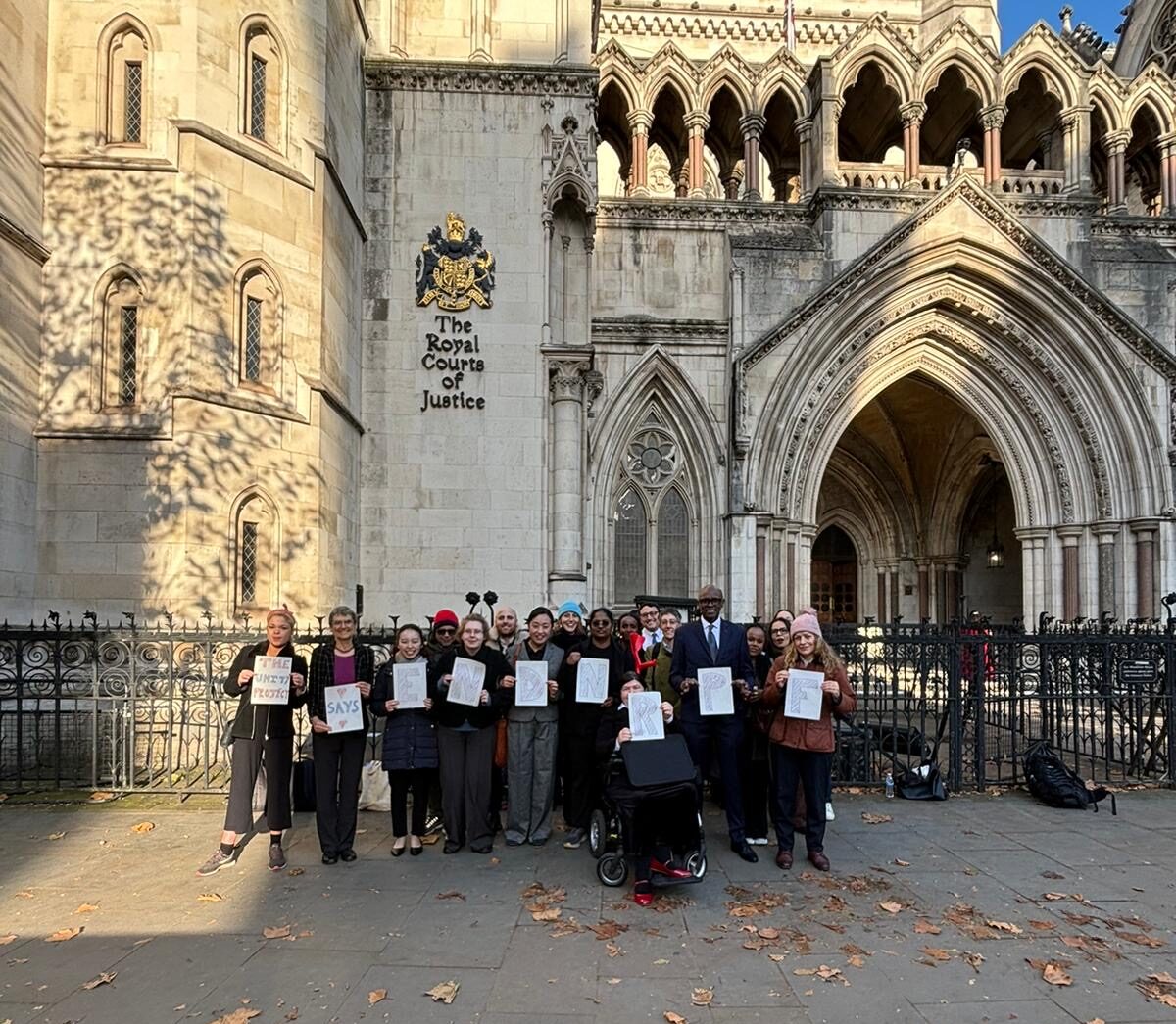
14 Nov Five children – age 6 months to 10 years – bring High Court challenge over Home Office’s ‘no recourse to public funds’ policy
Five children, age 6 months, 2, 5, 7 and 10, from three different families, are today (14 November) taking the UK government to the high court over an ’unlawful’ policy which is forcing them and their parents into destitution.
The three separate cases which will be heard together by the court concern the impact of the Home Office’s controversial ‘no recourse to public funds’ (NRPF) policy, which denies many children with migrant parents access to the welfare safety net.
Their legal team will argue that it is irrational and unlawful for the Home Office to claim that blocking their families from accessing essential state support is not damaging the children’s welfare.
The families are represented by the specialist law firm Deighton Pierce Glynn; and are supported by The Unity Project, a charity which helps people who are struggling financially due to NRPF.
Adam Hundt, the DPG partner leading on the case, says:
‘The Home Office has a legal obligation to safeguard children’s welfare. It is difficult to see how separating a toddler from her mum and brother and requiring a 10-year-old boy to share a bed with his mum promotes those children’s welfare, as is happening in these cases.” (See details of cases, below.)
Michael Boyle, director of The Unity Project, says:
“We think that everyone living in the UK should have access to welfare support to protect them from crisis. And yet we frequently come across families like these who are trapped in destitution by the ‘no recourse to public funds’ policy. This is a policy which has been found to be unlawful multiple times already and it needs to change, which is what we hope this legal challenge will achieve.”
The families bringing the case are all living in cramped, unsuitable and insecure homes; all have parents doing low-wage jobs who would be eligible for top-up benefits, if they were not blocked from accessing welfare support by the Home Office.
Case of ‘BPB’
A mother of two, who works part-time as a carer, has been living apart from her youngest child (now age 2) for nearly a year, as she cannot support both children on her earnings alone.
In evidence that will be put in front of the judges, she says:
‘As I could not get benefits to top up my income … I decided that I would take my daughter to Ghana to live with my mother. She was 1 year old at the time. I could not see a way of looking after her and working to support us all at the same time.’
The mother now shares a bed with her 10-year-old son in the spare room of a relative who has repeatedly told her to move out. She fears her son’s learning difficulties are being exacerbated by the cramped conditions they have been living in for nearly a year.
She says:
‘There is nowhere for him to do his homework in peace, play with his toys, or maintain a healthy routine. There isn’t enough room for a desk or toys, or any space for him to study or play really, so he is not able to express himself or learn in a way that will enable his development.’
Her lawyers will argue the Home Office’s decision to deny the family access to state support, had ‘entirely ignored’ that a two-year old is growing up without her mother and brother, and the latter two’s precarious and inappropriate living conditions.
Adam Hundt says:
‘The Home Office’s position seems to be that having been willing to help them out for a short period, their relative is now obliged to continue to host a 10-year-old boy and his mother in a shared bed in perpetuity.’
Case of ‘SAG’
A couple with three children age 6 months, 4 and 7, were left homeless and living in temporary accommodation after the Home Office unexpectedly cut off their right to state support.
Despite working up to 70 hours a week, the father’s earnings from construction work are not enough to keep the family afloat, leaving them reliant on the extra help. His long working hours mean that the mother is solely responsible for childcare and so unable to earn an income.
Case of ‘LG’
A single mother who came to the UK in 2011 is living with her 5-year-old daughter in the box room of her cousin’s sister and relying on foodbanks, as earnings from her part-time/school-hours job in food preparation are so low.
The cousin’s sister has repeatedly asked them to leave; and when other members of her cousin’s sister family come to stay, the pair have to sleep on the floor in the living area.
For more information, contact:
Fiona Bawdon; fiona@impactsocialjustice.org ; info@unity-project.org.uk ; mail@dpglaw.co.uk; 020 7407 0007
Notes for editors
- Deighton Pierce Glynn is a specialist civil rights law firm, with offices in London and Bristol. It has brought a string of successful legal challenges over the Home Office’s ‘no recourse to public funds’ policy.
- The Unity Project is a charity based in north London which supports individuals and families who are denied essential welfare support due to NRPF.
- The legal challenges brought by BPB & Another, SAG & Others, and LG & Others, is due to be heard at the high court in London on 13 and 14 November 2025. Barrister Ben Amunwa of 3 Paper Buildings is acting for the families, along with Donnchadh Greene of Doughty St Chambers. Judgment is likely to be reserved.
